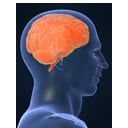
Face and Voice: The Power of Our First Impression
In the intricate dance of social interaction, first impressions hold immense weight. Within a mere fraction of a second, our brains make critical judgments about the people we encounter. These snap decisions, often unconscious, are based on facial expressions and vocal cues, shaping our perception of trustworthiness, competence, and even dominance. This documentary delves into the science behind these instantaneous inferences, exploring their evolutionary roots, potential biases, and the intriguing implications for artificial intelligence.
The ability to make rapid judgments about others is an evolutionary inheritance. Our ancestors relied heavily on nonverbal communication for survival. Reading faces and voices quickly helped identify potential threats or allies, a skill honed by natural selection. This ingrained response persists today, influencing our decisions in everything from hiring practices to who we trust with our vote. Although often accurate in the past, these snap judgments can be misleading in our complex modern world. A stern expression might be misinterpreted as hostility, or a friendly smile could mask hidden motives.
Further complicating these judgments are the stereotypes we unconsciously hold. Throughout our lives, we are exposed to associations between certain facial features and vocal qualities with specific personality traits. These stereotypes can bias our initial impressions. Studies have shown that participants exposed to faces paired with arbitrary personality descriptions began to form stereotypes about those faces. This highlights the vulnerability of our snap judgments to pre-existing biases, potentially leading to unfair or inaccurate assessments.
The rise of artificial intelligence presents a fascinating parallel. As AI technology advances, its ability to read faces and voices is becoming increasingly sophisticated. This raises a crucial question: will AI be susceptible to the same biases that cloud human judgment? If algorithms are trained on data sets that reflect human biases, then AI systems might perpetuate these biases in their interactions with the world.
Directed by: Dorothee Kaden




27000 dollars for the firrhat robot!